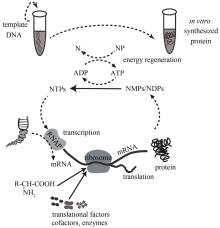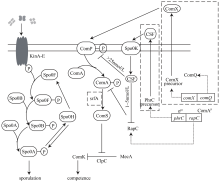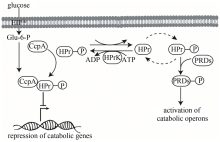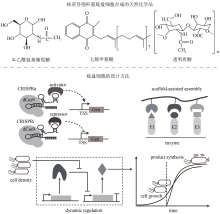|
||||||||||||||||||||||||||||||||||||||||||||||||||||||||||||||||||||||||
|
Advances in design, construction and applications of Bacillus subtilis chassis cells
Synthetic Biology Journal
2020, 1 (2):
247-265.
DOI: 10.12211/2096-8280.2020-030
As a model industrial host and an important generally recognized as safe microorganism, Bacillus subtilis has been used for a wide range of applications such as the industrial production of enzymes and nutraceuticals. In recent years, with the elucidation of the genetic regulation mechanism of B. subtilis, various research strategies and technologies have been designed and developed with this chassis, including gene editing, gene circuits, spatial biomolecular scaffold and cell-free expression systems. In this review, we start with systematic summaries on the construction of B. subtilis chassis based on gene editing systems and endogenous regulatory mechanisms. Then applications of B. subtilis cell factories are discussed for producing N-acetylglucosamine, menaquinone-7, riboflavin, hyaluronic acid and β-cyclodextrin glycosyltransferase. Finally, prospects for the design, construction and applications of engineered B. subtilis strains are commented, with an emphasis on improving genome editing efficiency, expanding responsive metabolite spectrum for genetic circuits, and rewiring the whole genome.
Tab. 2
Common promoters for the B. subtilis expression system
Other Images/Table from this Article
|




